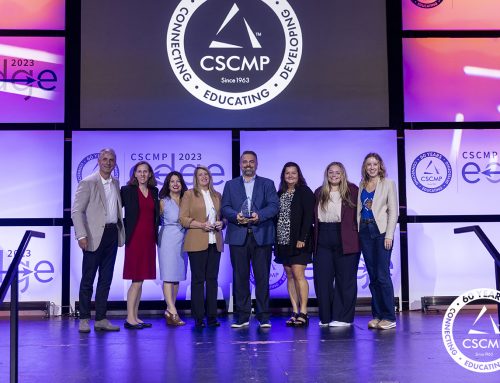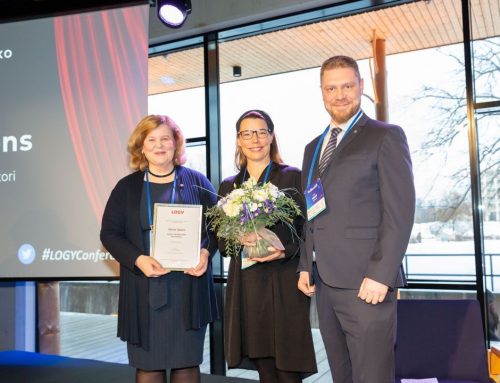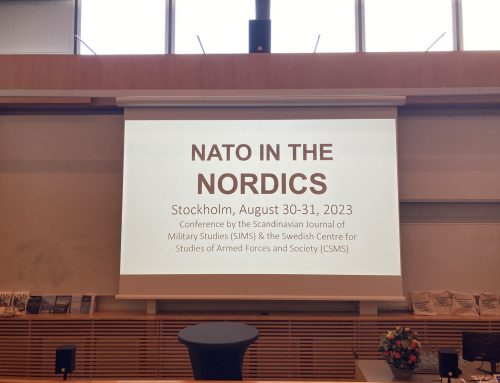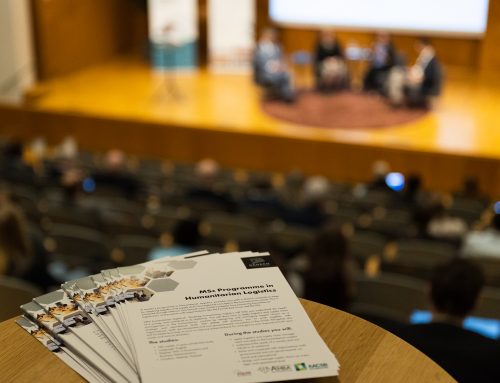LOGY Conference on 9th February 2023
by Lauri Jauhiainen
Master’s Student in Humanitarian Logistics at Hanken School of Economics
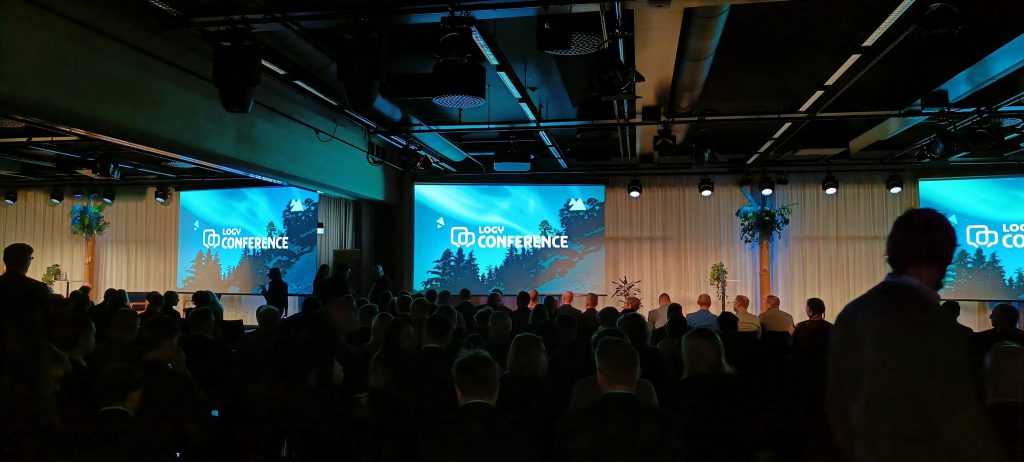
Hanken’s HUMLOG faculty members and students participated in the LOGY conference on 9th February 2023. The conference is arranged annually by the Finnish Association of Purchasing and Logistics – LOGY, an association with some 4000 individual and 300 corporate members in Finland. The conference was structured in a way that allowed for good opportunities to network with people in the same field.
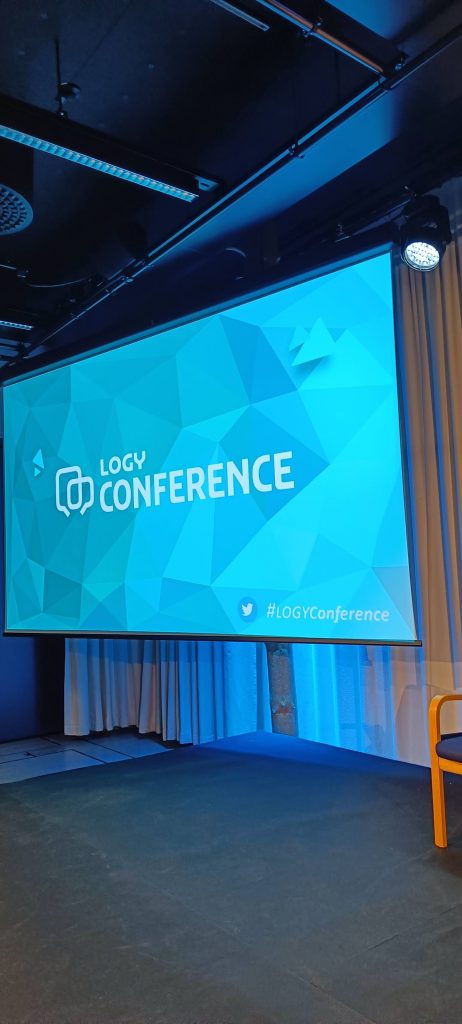
The full day conference covered a broad scale of topics – from technical innovations and company case presentations to presentations covering whole markets and world geopolitics. It was clear that preparedness against crisis and supply chain disruptions are hot topics in business logistics and SCM. This blog presents some of the themes in the presentations.
Jari Voutilainen from Metso Group – a major Finnish paper manufacturer – started in his position as responsible for the sourcing and the logistics of the company in late 2021. According to his presentation, his thoughts by then were that: “At least, it is good to start from the bottom”, as the covid-19 pandemic had disrupted the supply chains remarkably and there had been a lot of work to stabilize the sourcing processes. After a few months in February 2022, it was clear that the situation could deteriorate even more as the Russian aggression against Ukraine stopped the Russian raw materials from being imported to Finland. For Metso, the strategy for maintaining the profitability amongst the crisis included solid processes, committed personnel, and clear strategies.
Minna Väisänen from Valmet – a supplier of process technologies – suggested that the three main challenges in the logistics have been in the recent years: 1) delivery reliability due to for example covid lock-downs and pile-ups at major harbors; 2) capacity shortages, for example the lack of containers, the slow-down of international flight freight due to less air passengers; and 3) high volatility of logistics prices, for example the cost of moving a containers increasing many-fold in a few months.
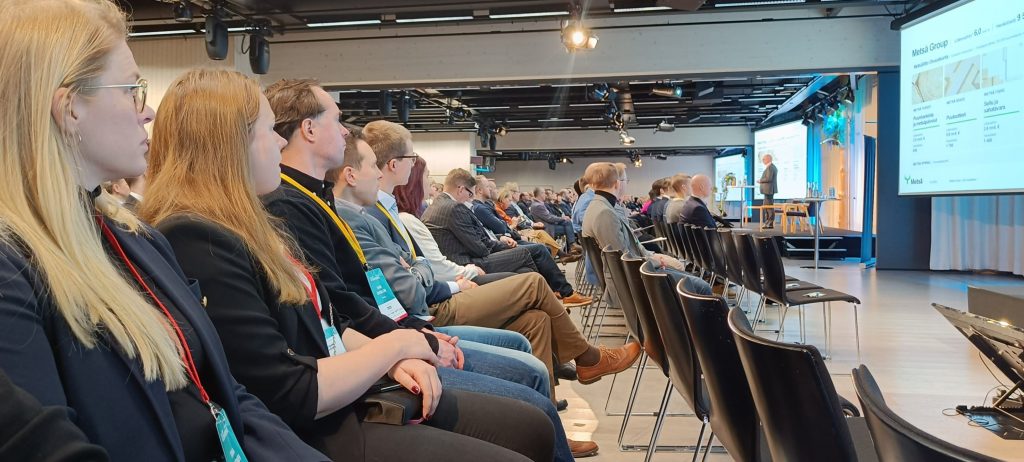
Mitigation strategies against these and other logistics challenges were presented by Jean-Louis Guelton of UCB – a biopharmaceutical company, among others. Resilience strategies presented by him were monitoring risk signals, a frequent inventorying process, and exploring the possibilities for swapping the sources before the crisis. A good perspective to the current crisis was presented by Sanna Suvanto-Harsaae who mentioned that there had been several other crises in the last three decades including the economic crisis after the fall of Soviet Union in early 1990’s, the technology bubble in early 2000’s, the financial crisis starting in 2008, and the more recent pandemic and war in Europe. Thus, it is not about if another crisis is coming, but rather, when it hits. According to Suvanto-Harsaae, in all the crisis mentioned there were some rules of thumb to follow, most importantly strategic thinking (“be a versatile fox, not a narrowly specialized owl”), focusing on the important (“what do you really really want”), the old wisdom that money still talks in business and thus there has to be a solid inflow of cash, and that a good leader takes care of her own wellbeing – also in the time of crisis.
Although the perspective of the conference was business oriented, most of the presentations had a clear emphasis on crisis mitigation and resilience. Many of the presentations also emphasized the strategic importance of logistics in contrast to a function that can be easily outsourced and not worried about. The emphasis on crisis and resilience was an interesting linkage to humanitarian logistics and the themes discussed resembled many of the discourses in academia. After one of the broadest presentations in scope by Mika Aaltola, the head of the Finnish Institute of International Affairs, it seemed clear that there are good reasons for keeping crisis readiness as a priority in logistics and supply chain management also in the future.

Lauri Jauhiainen is a Master’s student at Hanken School of Economics currently engaged with writing his thesis in Humanitarian Logistics.

